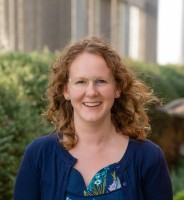Climate Change
Women's Health
Societal Challenges
Climate Adaptation & Resilience
Gender Equality & Inclusion
Social Justice & Equity
Environmental Justice
Agriculture, Crops & Soil Health
Post-Doctoral Fellowships
Spain
2017.09.14
Insuring Transformational adaptation of agri-food systems to Climate change by taking the needs and roles of Women into account
"Climate change strategies are not always designed to suit everyone. Change can produce both winners and losers, excluding some people from the equation", Dr. Federica Ravera points out. "What my project aims to encourage is to take everyone's specific conditions into account and build on everyone's knowledge to contribute to the development of long-lasting and transformational solutions". Within the agri-food system, not everyone is equal when it comes to climate change risks. Age, gender, socio-economic class, among other identitary and structural factors, intersect entailing power inequalities and differential perceptions, knowledge and practices related to agriculture, livestock and food management. It can also imply differential ways of organising collective actions. "To date, the role that women and marginal groups play or might play in the transmission of knowledge and in institutional arrangements for adaptation has been neglected in climate change policies and research", Dr. Federica Ravera stresses. "The general objective of my research is thus to assess the gendered and intersectional nature of key risks under climate change with the aim of evaluating the potential factors that may facilitate or hinder successful adaptation options in Mediterranean marginal rural areas".
A feminist philosophy of science applied to the mitigation of climate change
In parallel with her exploration of the position and role of women and to ensure her research captures a full picture of the local context, Dr. Federica Ravera will make a survey of the current ways in which novelty in institutional arrangements and social inclusion mechanisms actually influence the adaptive capacity of the local agri-food systems studied. The project will also explore the ways and means by which successful innovative practices can emerge and be diffused among traditional farming society, culture and management. The overall aim is to fill in the gaps in knowledge pointed out by the IPCC and to lay the foundations for re-focusing of the issue of adaptive capacity. "If we want to efficiently adapt to climate change, we need to broaden the current spectrum of actors involved and take into account marginalized people, among which are different groups of women whose invisibility may also intersect with multiple identitary and structural factors that define power dynamics By including and giving a voice to these highly-relevant actors of the agri-food systems, opportunities of new knowledge and innovation for climate change will arise", summarises Dr. Federica Ravera.
By adopting a feminist philosophy of science and applying it to the mitigation of the impact of climate change on agriculture and food, Dr. Federica Ravera's project will significantly contribute to broader and more accurate vision of the actual risks that highly-exposed regions face with climate change. Building on a better understanding of everyone's situation and involvement will provide new insight and perspectives on how to sustainably and substantially adapt to the challenges of tomorrow's climate.
Taking back the hills: a tale of women rights and lands in the Catalan Pyrenees
Article by The Conversation
READ THE ARTICLE

Federica
RAVERA
Institution
Universitat Central de Catalunya
Country
Spain
Nationality
Italian
Related articles
Sustainable Living & City
Climate Change
Climate Adaptation & Resilience
Urban Planning
Resilient Infrastructure & Safety
Environmental Justice
Post-Doctoral Fellowship
Australia
2023.06.20
Indicators for Climate Resilient City Planning
Expected start date:June-2023 Cities contribute enormously to global greenhouse emissions and are key drivers of climate change. By the same... Read more

Melanie
LOWE
Institut royal de technologie de Melbourne
Climate Change
Pollution
Aerosols & Particulate Matters
Public Health & Health Policy
Toxic Pollutants & Hazardous Substances
Post-Doctoral Fellowship
Greece
2023.06.01
Insight in Dust Fine-Mode to Mitigate Health Hazards in a Changing Climate
Expected start date:June-2023 In late-April/early-May 2022, a surge of remarkable dust storms ravaged Iraq, resulted- according to the World Health... Read more

Emmanouil
PROESTAKIS
